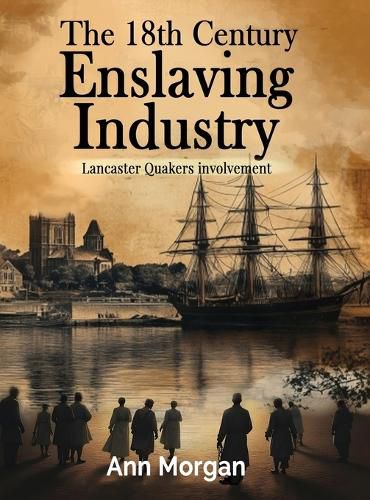Readings Newsletter
Become a Readings Member to make your shopping experience even easier.
Sign in or sign up for free!
You’re not far away from qualifying for FREE standard shipping within Australia
You’ve qualified for FREE standard shipping within Australia
The cart is loading…






This title is printed to order. This book may have been self-published. If so, we cannot guarantee the quality of the content. In the main most books will have gone through the editing process however some may not. We therefore suggest that you be aware of this before ordering this book. If in doubt check either the author or publisher’s details as we are unable to accept any returns unless they are faulty. Please contact us if you have any questions.
This book uncovers a little-known history of Quakers in Britain and demonstrates how the activities of a group of Lancaster Quaker Merchants involved in slavery fitted the accepted social, political and moral attitudes of 17th and18th century Britain towards the enslavement of Africans. It suggests that the single heroic narrative of British Quakers being abolitionists masks the truth that some British Quakers were heavily involved in all aspects of the enslaving industry and that despite Quakers centrally opposing enslaving they were not formally challenged or disowned.
The use of family histories to follow the fortunes of these men whilst providing an insight into the early Quaker movement explains how the money generated by enslaving Africans came back into British society to finance infrastructure projects such as canals, turnpikes and country houses, to establish banks and cotton mills supporting the development of the industrial revolution, to provide community welfare projects and enhanced social status for the families. These families present a picture of what was happening to many of the families of the 10,000 people in Britain who invested in the enslaving industry. Their money made a major contribution to building the society in which we live and from which we benefit today at the expense of the labour and lives of past enslaved Africans.
$9.00 standard shipping within Australia
FREE standard shipping within Australia for orders over $100.00
Express & International shipping calculated at checkout
Stock availability can be subject to change without notice. We recommend calling the shop or contacting our online team to check availability of low stock items. Please see our Shopping Online page for more details.
This title is printed to order. This book may have been self-published. If so, we cannot guarantee the quality of the content. In the main most books will have gone through the editing process however some may not. We therefore suggest that you be aware of this before ordering this book. If in doubt check either the author or publisher’s details as we are unable to accept any returns unless they are faulty. Please contact us if you have any questions.
This book uncovers a little-known history of Quakers in Britain and demonstrates how the activities of a group of Lancaster Quaker Merchants involved in slavery fitted the accepted social, political and moral attitudes of 17th and18th century Britain towards the enslavement of Africans. It suggests that the single heroic narrative of British Quakers being abolitionists masks the truth that some British Quakers were heavily involved in all aspects of the enslaving industry and that despite Quakers centrally opposing enslaving they were not formally challenged or disowned.
The use of family histories to follow the fortunes of these men whilst providing an insight into the early Quaker movement explains how the money generated by enslaving Africans came back into British society to finance infrastructure projects such as canals, turnpikes and country houses, to establish banks and cotton mills supporting the development of the industrial revolution, to provide community welfare projects and enhanced social status for the families. These families present a picture of what was happening to many of the families of the 10,000 people in Britain who invested in the enslaving industry. Their money made a major contribution to building the society in which we live and from which we benefit today at the expense of the labour and lives of past enslaved Africans.